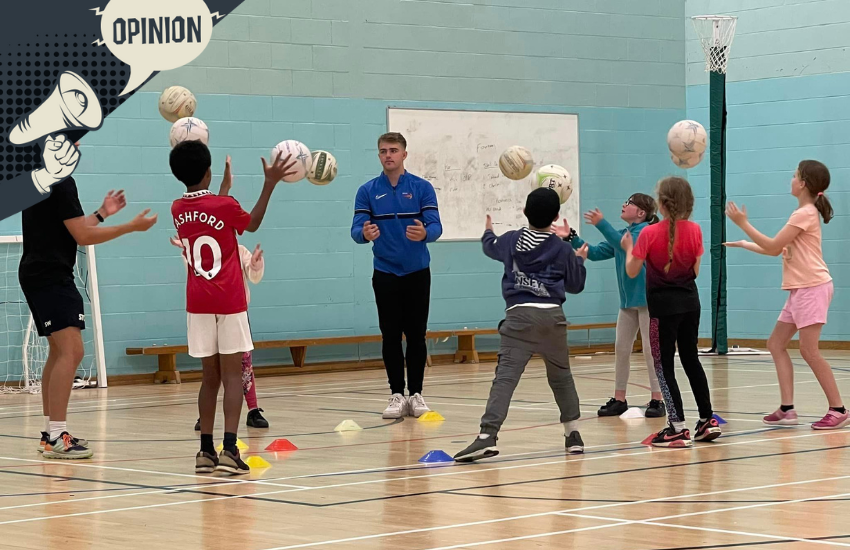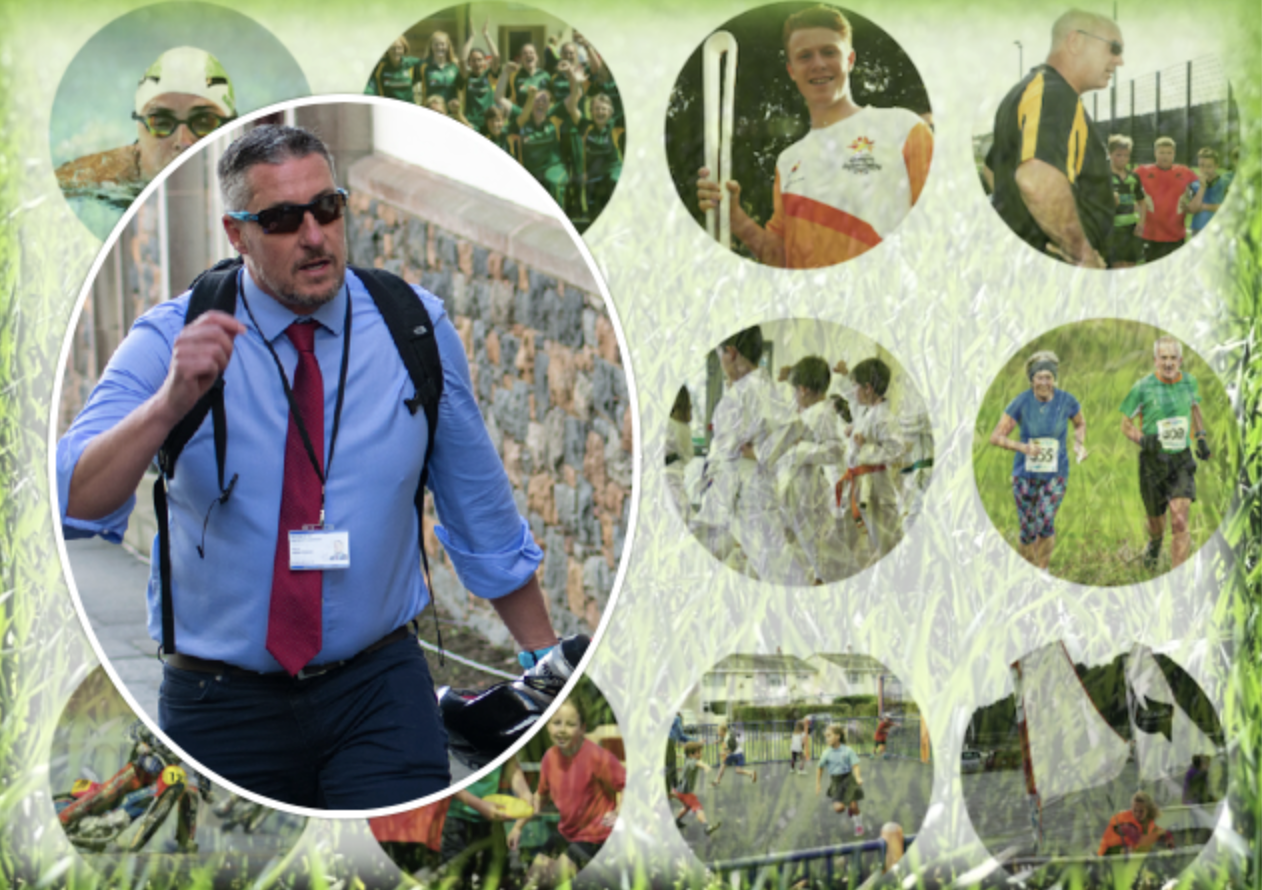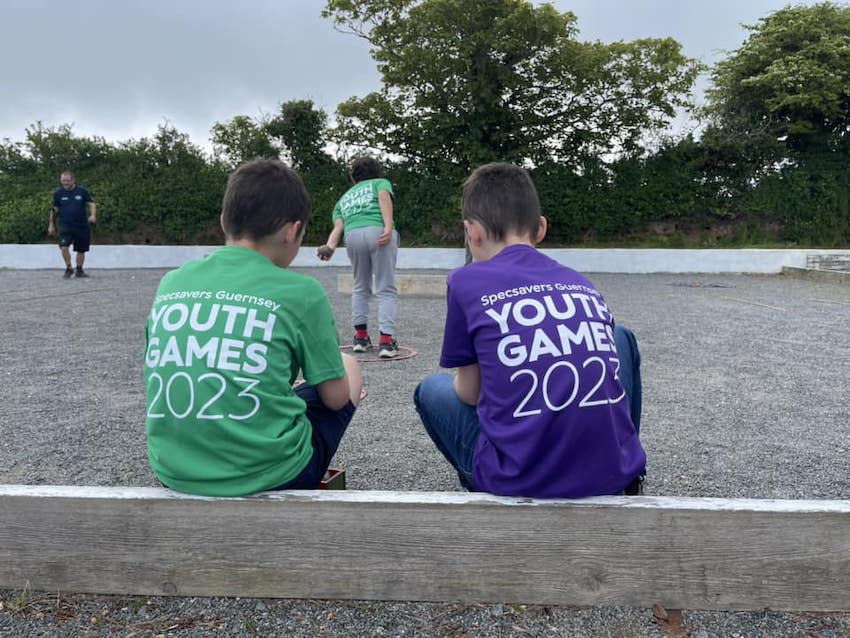


Guernsey’s government spends a relative pittance on sport, Education wants to cut that further.
It has all the hallmarks of the short-termism that plagues political thinking in this island and screams of hypocrisy.
Remember all that talk of preventative healthcare, the need to boost activity levels so people live healthier lives and to help keep health costs in check?
Well, throw that out the window because Education, Sport & Culture, with the laudable exception of Deputy Andy Cameron, believes that one of the best ways to make savings in its £80m a year budget is through slashing spending on the sports strategy, and in doing so threatening to unravel three years of good work already done.

Remember the drive for more commissioning of services because they can be delivered more effectively and for less money than within the public sector, as well as attracting extra private support?
It seems that ESC isn’t that supportive after all, it would much rather spend money covering up other inefficiencies.
Known as Active 8, the plan for sport was unanimously approved by the last States which directed Policy & Resources to include budget recommendations so that it was fully funded.
It was meant to last until 2030, and finally offered some strategic direction.
All good, until a new committee came in at Education and is now faced with the need to save money, in part driven by its drive for a model of secondary and post-16 education that is more costly than the alternatives.
The Guernsey Sports Commission delivers much of Active 8, although not all of it.
It is also responsible for other programmes that sit outside of the strategy that Education will thankfully continue to back.

Since 2004, the Commission has been driving participation in sport forward more cost effectively than the States could ever achieve.
So what does it do?
Even the areas of funding that ESC is not touching, it has allowed to be effectively cut over the years.
At the outset of the Commission’s formation there was a £209,000 budget - which has not even got close to keeping pace with inflation. It rose, sure, but only by 5%, and only this year.
A total of £41,000 in public money helps towards the employment costs of 13 sports development officers, that is supplemented by the clubs and private support the Commission has gathered to the tune of another £80,000 - that is the commissioning model in action and something the States could not achieve itself.
Another £40,000 sits in a Commonwealth Game and Island Games travel fund.
£10,000 goes towards drug education. There are then salary costs for management and administration.
To support PE in primary school before the last Education Committee came in, the commission attracted some £100,000 in private funding. They started in a couple of schools and it ballooned. A success story.
Since 2019 Education has part-funded that programme, now to the tune of £230,000 a year, and is committed to doing so until 2025.
There is now someone working with every primary school helping the staff deliver PE.
Every teacher has to deliver PE, but the vast majority are not specialists. They need the support and once they are confident, the Sports Commission staff member can then work with smaller groups of children that need help.
Those commission staff also run breakfast, lunchtime and after school clubs.
The sports specific development officers also work with children in years five and six.
Some commentators have suggested that it should be left to the teachers to deliver PE, the obvious counter is that the quality would tumble, it could put children off for life and the subsequent cost of that could be enormous to society.
There is also the community work that the Sports Commission is involved in.
Its Street Sports initiative means that free sports and physical activity sessions are offered at locations across the island where young people may experience social or economic difficulties.

It helps deliver the Specsavers Youth Games, where more than 700 children from Y5 and Y6 take part in 23 different sports. There is no States funding. In fact, the States charges for the use of the public facilities instead.
The commission runs the On Your Marks holiday programme for children to take part in different sports, all at a low cost to keep it accessible, and again paying the States to use the facilities.
It also offers free or subsidised spaces for vulnerable families that are referred by the schools - having the commission’s staff in the schools aids this.
For older children there are sports taster sessions.
This is currently funded by a grant from the Social Investment Fund.
To be crystal clear, none of that is directly effected by the Active 8 decision, but is illustrative of how the commission works and can attract funding away from the public sector to expand its reach.
It is also an example of how vulnerable any of these programmes could be to funding decisions down the line.
The Active 8 strategy is owned by the government. It was voted for by the previous Assembly.
The Sports Commission produced its own action plan, something that is notably simpler, that speaks to that strategy.
Funding for the parts of the strategy that the commission picked up began in mid-2021 and continued in 2022 and 2023.
That funding was frontloaded in the first year.
For the last two years the commission has been asking ESC what happens after year three. It has had no answer until now.
A big part of Active 8 has been improving governance and safeguarding in sports.
It sounds dry, but is obviously incredibly important.
The Sports Mark scheme allows parents and carers to know that their children are going into a safe, well run environment, with appropriately qualified coaches.
Through it the Commission is helping clubs drive up standards and look to the future. In some cases Guernsey is 20 years behind the curve of UK clubs and associations.
Active 8 has also funded the sports vouchers scheme.
This helps, for example, a family who could not otherwise afford the fees to pay for their child to be a member of a football club, or afford the equipment needed.
It has helped children stay involved in boxing, basketball, gymnastics and athletics.
Both the Sports Mark scheme and sports voucher scheme will remain Sports Commission priorities if the axe does come down on Active 8, it will just mean cutting what it does elsewhere.
The Commission is accredited to offer level multi skills coaching qualifications and first aid qualifications.
It can go into schools with a package that trains the pupils so they come out of education with a broader skill set, potentially to work for the Commission to deliver its holiday programmes and beyond.
It would like to expand training on the island for coaches, something which itself means better quality and you are therefore more likely to keep people engaged in sport, but the cuts will mean this goes.
Some of the other work it has been broadening the sporting opportunities within secondary schools to include things like climbing, paddle tennis, skateboarding and stand-up paddle boarding.
It means that more children are engaged in different activities, it increases the opportunity that these healthy habits become engrained.
It also allows its staff to engage children who would otherwise miss out, they may have anxiety, for example, with tailored packages.
That too will stop.
Commissioning is all about people who are experts in a field delivering a service more effectively and efficiently than if it was in-house.
The Sports Commission has been doing that for 20 years.
There are areas within sport that the government should fund. Public money can then be leveraged to provide even better services.
But the current model means that the rug can be pulled and there is no chance of a long term strategy.
It means waste and inefficiency - what does that remind you of?
If you want to find more money, for starters we could look at the £130,000 that was put into Education’s budget to develop performance indicators as part of Active 8.
It has sat there for three years, nothing has happened with it.
Which is understandable, because it is a pointless project.
How do you measure the impact of a child learning a skill now that they use in 40 years time? Who was inspired in an after school club to stay active which has kept them out of the healthcare system? Who has controlled their anxiety through sport so later in life stay in employment?
Politicians and civil servants like clear lines, numbers, graphs, but we are not talking about the number of homes being built in a year or exam results here.
You can already monitor the number of staff hours delivering these programmes, the number of children they attract, even how many stay engaged or go on to sports clubs without throwing £130,000 at it.
But there is a much bigger picture that statistics cannot capture and that money is better spent on actually delivering some good in the community.
No-one is saying the Sports Commission is untouchable or that it should not be adaptable as times change - indeed it has shown that as its provision has changed.
But the model works, it is providing Education and the States with value for money that simply cannot be achieved within the walls of Frossard House.
Perhaps Education has read the room on this.
When Express asked why it was not following the previous resolution for the strategy to be funded, a spokesman said: “The Committee is still in discussions about the level of funding that should be attached to the ongoing delivery of Active 8: A Plan for Sport, and how the overall funding is prioritised, it would be wrong to assume that the published figures via the Government Work Plan are a best and final amount.”
Comments
Comments on this story express the views of the commentator only, not Bailiwick Publishing. We are unable to guarantee the accuracy of any of those comments.